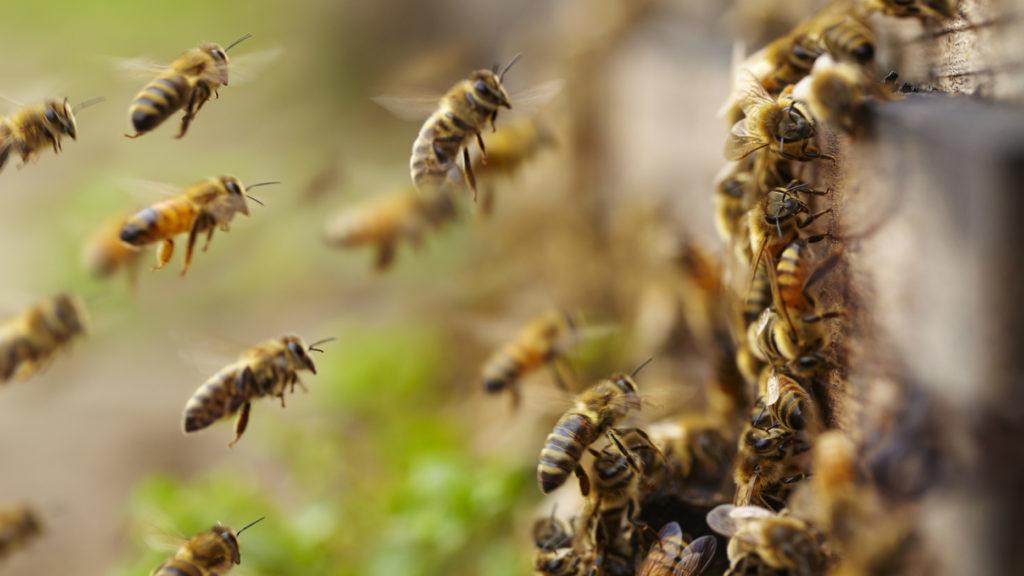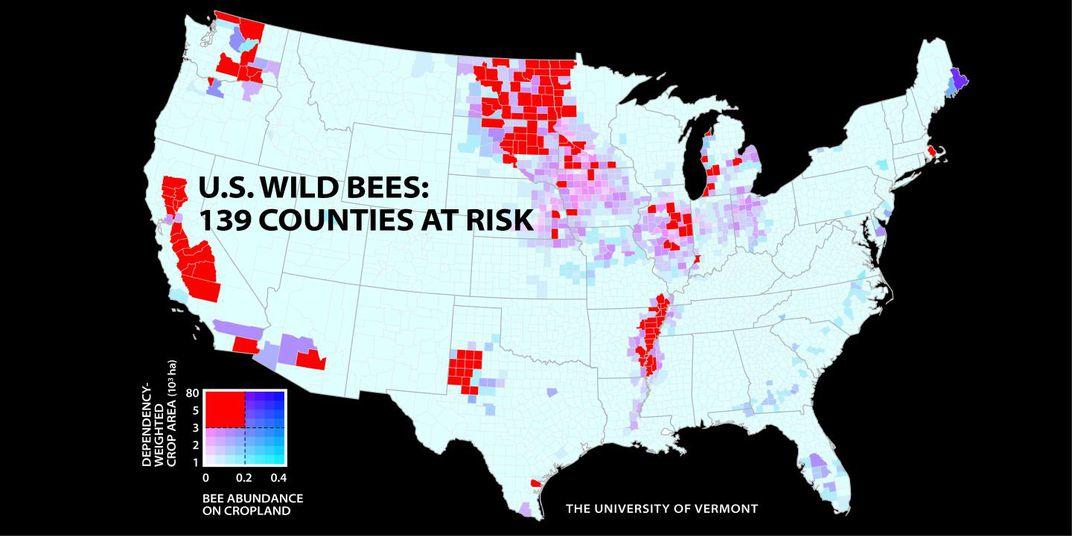Wild Bee Population Collapses By 90% In New England, Study Warns
Researchers from the University of New Hampshire conducted a study to document declines in about 100 wild bee species critical to pollinating crops throughout New England. What they discovered, according to the study, was a collapse in the wild bee population across the state, reported AP.

Researchers analyzed 119 species in the state from a museum collection at the college dating back more than a century. Sandra Rehan and Minna Mathiasson published the study in the peer-reviewed journal called Insect and Conservation Diversity this month. They concluded 14 species found across New England were on the decline by as much as 90%. Several of the species include leafcutter and mining bees.
“We know that wild bees are greatly at risk and not doing well worldwide,” Rehan, assistant professor of biological sciences and the senior author on the study, said in a prepared statement. “This status assessment of wild bees shines a light on the exact species in decline, besides the well-documented bumblebees. Because these species are major players in crop pollination, it raises concerns about compromising the production of key crops and the food supply in general.”
The AP noted that wild bee populations across the world are in decline, and scientists have blamed a wide range of factors including industrialization, insecticides, herbicides, parasites, disease, and climate change. Bees are crucial for pollination, and about one-third of the human diet derives from plants that are directly pollinated by bees.

Greg Burtt, founder of Burtt’s Apple Orchard in Cabot, Vermont, told the AP that his farm relies heavily on wild bees for crop production.
“Making sure that pollinators in the area are healthy and doing well is definitely something we’re concerned about,” Burtt said.
…click on the above link to read the rest of the article…